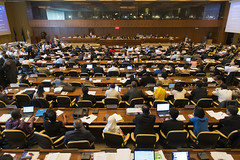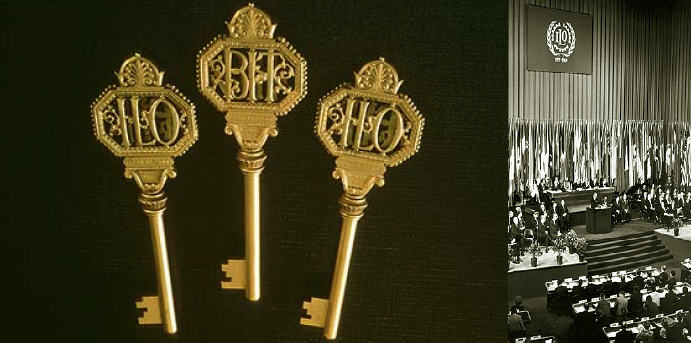ILO is a specialized agency of the United Nations


| Français - Español | |
| |
|
| > Homepage > Online information resources > Resource guides > History of the ILO | |
|
ILO activities in the post-war world (Part 2: 1960-1988)
|
ILO decentralizes its activities and structureThe establishment of the United Nations
Development Programme (UNDP), the admission of a growing number of Member States asking for technical cooperation and
the recommendations made by the ILO's regional meetings prompted the ILO
Director-General, David A. Morse, to launch a process of administrative decentralization.
The first decentralization measures were taken by the Director-General in 1965 with a view to enhancing ILO′s effectiveness. The objectives of this thorough reform of the Organization′s administrative structures were to:
(Source: Programme and budget for the biennium 1970-71, 52nd Financial Period, ILO, Geneva, 1969, p. 13.) Opening of the International Training Centre of the ILO (Turin)Designed
to further the economic and social development of the Member States and to strengthen the role of the constituents, the Centre
organizes courses for senior staff from private and public companies, the
directors of vocational training systems or facilities, the leaders of
trade unions and employers′ organizations, civil servants and other
national officials in charge of formulating and implementing social policy,
of the economic promotion of women and of human resource management.
Almost 70,000 people from 172 countries and territories have received some form of training since the Centre opened. |
|
| Last update: 23.02.2015 | ^ top |













